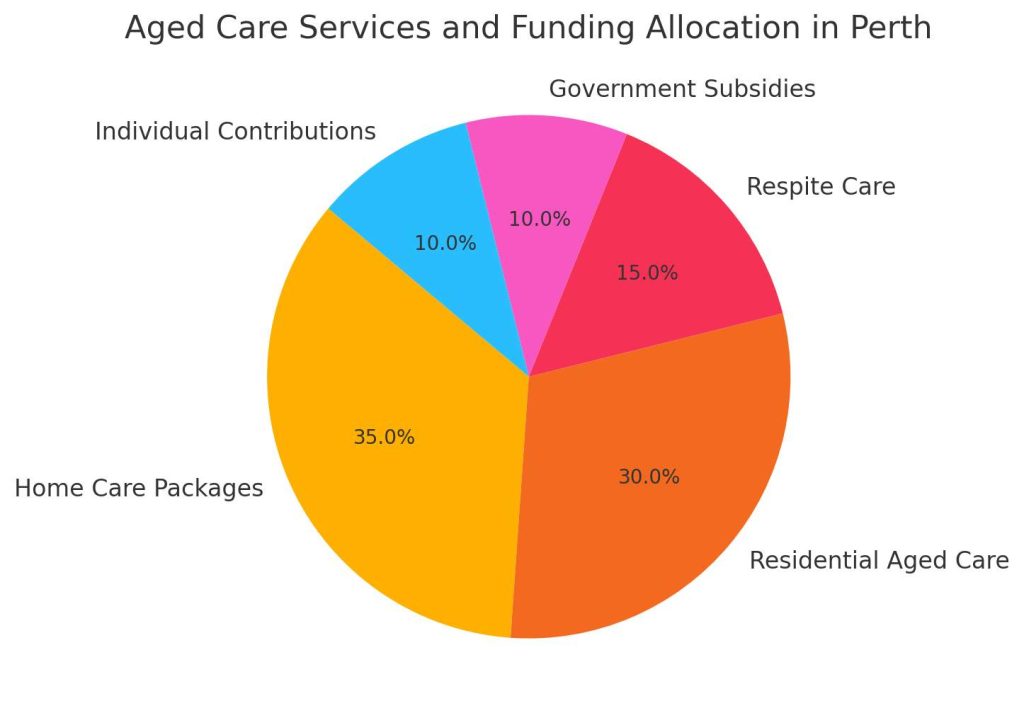The needs of Perth’s ageing population continue to evolve, making it essential to understand aged care services, financial obligations, and entitlements. A clear understanding of these aspects ensures that seniors receive appropriate care tailored to their needs. This guide provides insights into aged care in Perth.
Aged Care Home Perth: Comprehensive Care Services
Hellenic Community Aged Care is committed to delivering high-quality aged care services in Perth. Combining medical support with a compassionate approach, the facility ensures a comfortable and enriching environment for its residents. The goal is not only to meet care requirements but also to enhance the overall well being of seniors through comprehensive and community focused services.
Types of Aged Care Services in Perth
Aged care services in Perth are designed to accommodate different levels of care. Understanding these options can help individuals and families make informed decisions.
Home Care: Supporting Independent Living
The Australian Government offers four levels of Home Care Packages to assist seniors in maintaining their independence:
- Level 1 – Basic Care Needs: Assistance with daily tasks such as dressing, meal preparation, and shopping.
- Level 2 – Low-Level Care Needs: Includes minor home modifications for safety and mobility support.
- Level 3 – Intermediate Care Needs: Regular support services such as nursing and allied health assistance.
- Level 4 – High-Level Care Needs: Comprehensive care, including specialised nursing services and palliative care.
Government subsidies are available for home care, though a co-payment may be required depending on financial circumstances.
Residential Aged Care: Full-Time Support
For individuals requiring continuous support, aged care homes in Perth provide two types of residential care:
- Low Care (Hostels): Assistance with personal care and access to allied health services in a communal environment.
- High Care (Nursing Homes): 24/7 medical supervision, including dementia care units and specialised nursing services.
The Australian Government’s Aged Care Funding Instrument (ACFI) determines subsidies for residents, ensuring financial assistance is allocated based on care needs.
Respite Care: Temporary Assistance for Seniors and Caregivers
Respite care provides short-term relief for primary caregivers and can be accessed in different ways:
- In-Home Respite: Professional caregivers visit the home, allowing family caregivers a break.
- Centre-Based Day Respite: Seniors participate in structured activities at an aged care facility.
- Emergency Respite: Immediate care support in case of unexpected caregiver unavailability.
- Residential Respite: Temporary stays at an aged care home in Perth for short-term care.
Government funding for respite care varies based on financial and care needs.
Aged Care Perth: Financial Considerations
Aged care in Australia operates on a co-payment model, where both the government and individuals contribute to the cost of care.
Government Subsidies
The Australian Government provides financial assistance through programs such as:
- Commonwealth Home Support Programme (CHSP): Covers basic home care services.
- Home Care Packages (HCP): Supports seniors with more complex needs.
- Aged Care Funding Instrument (ACFI): Subsidises residential aged care services.

Individual Contributions
Seniors may be required to contribute financially based on a means test that assesses income and assets. Payment structures include:
- Basic Daily Fee: Covers daily living expenses and is capped at 85% of the single age pension.
- Means-Tested Care Fee: An additional fee based on financial capacity.
- Accommodation Payments: Can be structured as a refundable deposit, daily rental payments, or a combination of both.
- Additional Services Fees: Optional services such as upgraded accommodation or meal preferences.
Respite Care Costs
Respite care is typically billed on a daily basis, with costs depending on the type of care received. Government funding may cover part or all of the expenses, depending on eligibility.
Eligibility for Aged Care in Australia
To access aged care services, individuals must undergo an assessment by the Aged Care Assessment Team (ACAT). This evaluation considers:
- Medical Conditions: Determines ongoing healthcare requirements.
- Physical Abilities: Assesses mobility and capacity to perform daily tasks.
- Cognitive and Mental Health: Identifies the need for specialised dementia care or psychological support.
- Social and Family Support: Examines the availability of caregivers and cultural considerations.
Eligibility Criteria
- Individuals aged 65 and older are generally eligible.
- Aboriginal and Torres Strait Islander individuals can access services from the age of 50.
- Veterans may qualify for additional aged care support through government programs.
- Specialised dementia care requires an additional assessment to determine the appropriate level of care.
Australian Residency Requirements
To receive government-subsidised aged care, individuals must be Australian residents and may need to undergo a financial means test to determine contributions.
Planning for Aged Care in Perth
Navigating the aged care system requires careful financial planning and understanding of available options. Seeking professional advice can simplify the process and ensure that individuals receive the appropriate care based on their needs.
For those in Perth, local aged care providers and advisory services are available to assist with assessments, funding applications, and selecting the right aged care home in Perth. Understanding entitlements and support structures enables seniors and their families to make informed choices about their future care needs.
With a well-structured aged care system in place, Perth residents can confidently access services that prioritise quality care, support, and dignity for seniors.
